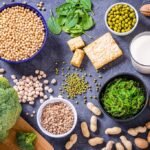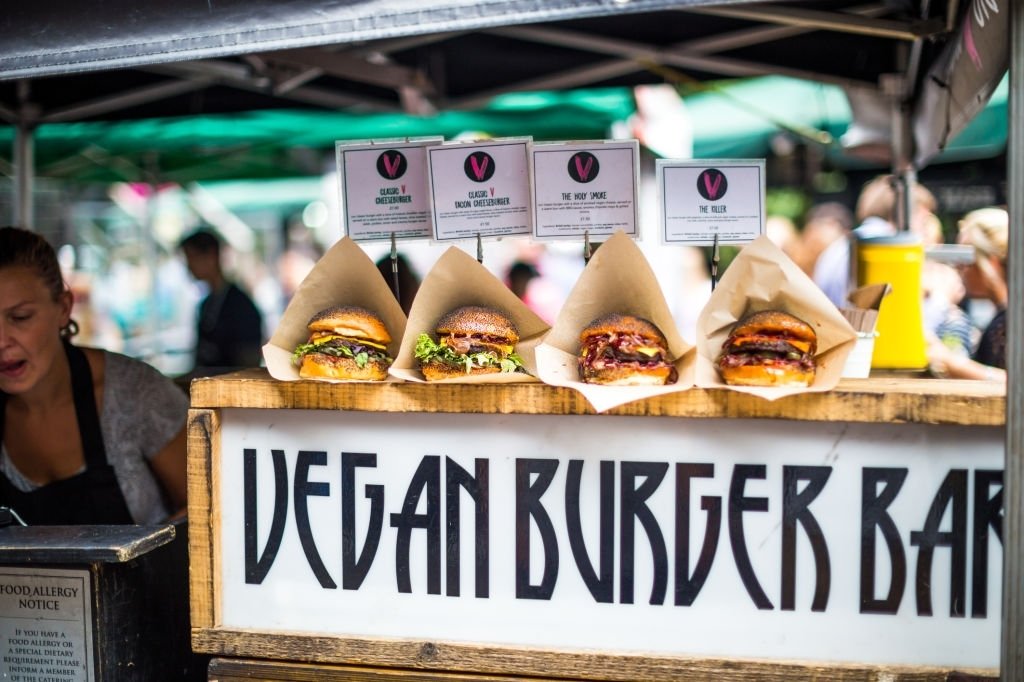To enjoy making custards or a mousse, it’s necessary to add thickening agents. Gelatin is one of the common cooking ingredients for this purpose. But it should be avoided by a true vegan. Gelatin is mostly comprised of collagen. Despite appearing harmless enough, that’s not the case. Read on to learn more and what a vegan can use as an alternative to gelatin.
Why Can’t Vegans Use Gelatin?
Gelatin is produced by taking animal bones and boiling them. Obviously, it’s not appropriate if you are looking to eat a vegan diet, or live a fully vegan lifestyle.
The bones, skin connective tissues or animal hides connected to them, and the cartilage all dissolve under extreme heat, resulting in gelatin.
As such, it should be considered an animal product and avoided by vegans.
Ultimately, gelatin is mostly comprised of collagen.
There isn’t an effective way to create an alternative to gelatin that’ll be satisfactory to a vegan. This is because it’ll always have some element of cattle, pigs, or other animal byproducts.
Gelatin is a common ingredient in sweet treats, including gummy candy, but don’t worry, there are plenty of vegan gelatin substitutes available.
Check out this article for other foods to avoid as a vegan.
Best Gelatin Replacements for a Vegan Diet
Some people refer to the best gelatin replacement for a vegan diet as vegetarian gelatins.
It is a convenient shorthand term for it to be more easily understood. However, it’s always a confusing one for consumers because they wonder whether it still contains animal byproducts?
The gelatin replacements aren’t made from gelatin at all…
Instead, they use plant-based ingredients and other types that completely avoid animal byproducts. These include agar-agar, pectin, carrageenan, and vegan gel.
Let’s have a look at vegan substitutes for gelatin in detail:
Agar Agar [aka Katen]
Agar agar presents with a jelly consistency, so it wobbles about!
It is also be marketed by another name: Katen.
Derived from the red algae — specifically taken from its interior walls – it’s flavorless. This makes it useful for amateur cooks and professional chefs alike. Whether wanting to create a vegan jelly or as one of the ingredients in a pudding, it’ll be a solid choice.
Producing vegan Jell-O is popular with agar agar. It has more firmness than regular jelly though. It is sold as a powder or in flakes, rather than as blocks of wobbly goodness. This makes it easily storable and practical to use in the kitchen.
Agar-agar flakes or agar-agar powder can be used for this.
Pectin
Pectin is not difficult to locate and produce as a vegan ingredient for cooks. Lots of fruits store pectin within their wall lining.
It doesn’t come in a gel form initially. It is necessary to warm it up and add either sugars or acids to the concoction.
When combined, it then thickens into a type of gel and then can be used as a thickening agent.
Vegan cooks find that pectin is syrupier than gelatin. Despite often being derived from apples and other citrus fruits, it is sold in flakes or as a powder.
It can be a stabilizer within a recipe, help other ingredients to stick together, or for thickening purposes too.
Carrageenan / Carrageen / Kappa Carrageenan / Irish Moss
Carrageenan is another one of these vegan ingredients with more than one name or spelling.
It is spelled as either carrageen or carrageenan. Also, it’s alternatively referred to as Irish moss. The reason for the latter is perhaps because it is obtained from dried red seaweed.
Commercial foods like frozen pizzas and ice cream may contain carrageenan even if the food item isn’t marked as vegan. This indicates how useful this vegan-friendly ingredient is.
This also emphasizes why it is important to read the ingredient list on a product as it may well be vegan, despite not advertising itself as such.
Sold as a powder, it becomes a soft gel once it’s brought to a boil. However, if you are looking for a firmer texture, kappa carrageenan is probably your go to product.
Vegan Jel
Unlike the other three alternative ingredients to gelatin, vegan jel is not an ingredient for purchase. Instead, it is a commercial product in its own right and sold by several food producers.
The mix of ingredients also varies, so one vegan jel isn’t the same as another. As such, you may develop a fondness for one preferred brand over another.
Most brands of vegan jel use carrageenan, vegetable gum, and tapioca dextrin, in some combination with other ingredients added too.
Lastly, the point that’s important to note here is that vegan jel was created as a direct replacement for gelatin. This includes its feel and consistency too.
So, for anyone who is struggling to adapt either their recipes or cooking techniques to new vegan ingredients, switching to this gelatin replacement for a vegan diet might work.
Is Vegan Gelatin Healthy?
Yes, vegan substitute gelatin is a healthy alternative to being stuck using animal-derived ingredients.
Other than when using vegan jel, pectin, agar agar, and carrageenan all provide vegans with the ability to choose one ingredient as a gelatin replacement. This lends greater confidence when baking a cake, producing a mousse, or thickening up a sauce from a recipe.
With vegan jel, you’ll need to be confident in the list of ingredients for this commercial product. However, it’s perfectly fine too. So, don’t let that put you off.
There you have it, our best gelatin replacements for a vegan diet. What are your thoughts? What is your favorite vegan gelatin replacement to use and why?


